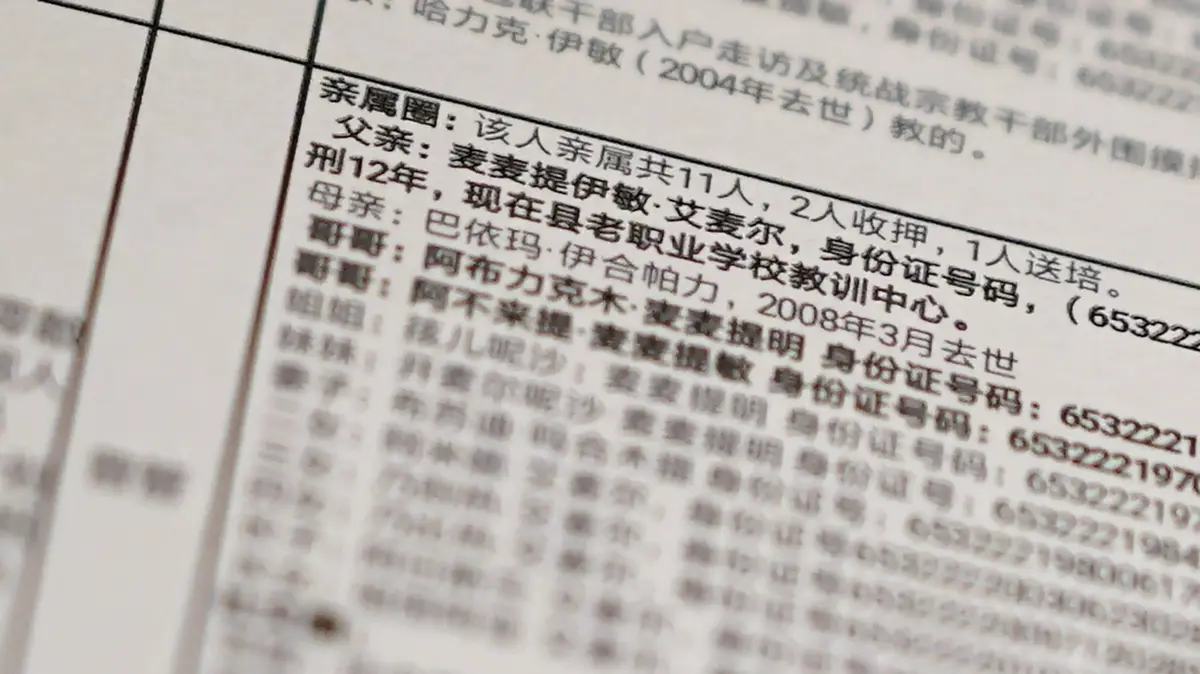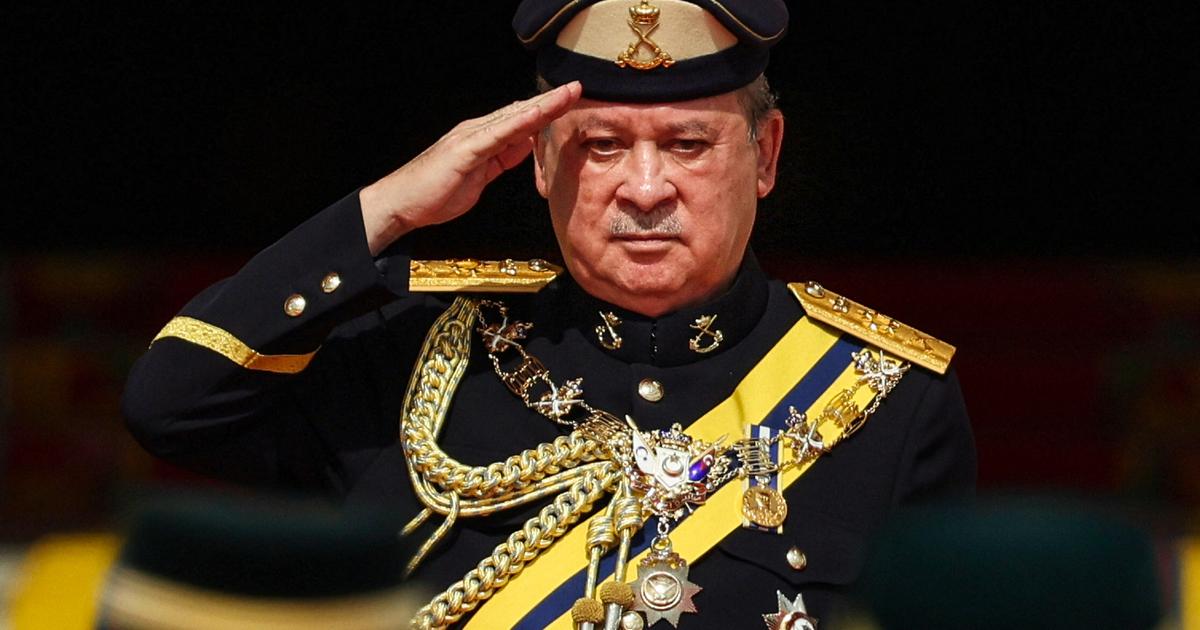Arrested for "Religious Infection" and Beard: Secret Documents Reveal Persecution of Muslims in China
New documents reveal the reasons why the Chinese government entered the Uruguayan detention camps, which are classified by rigid categories. The data shows that Beijing focused on religion as a grounds for detention - and not political extremes, so participating in prayer or family ties was considered a defiance of government
Arrested for "Religious Infection" and Beard: Secret Documents Reveal Persecution of Muslims in China
Photo: Reuters, edited by Tal ReznikFor decades, the Uighur imam, the Muslim minority in China, was a cornerstone of his farmer community in the far west of China. On Fridays he preached Islam as a religion of peace and on Sundays he treated patients with free herbs. In winter he used to buy coal for the poor. However, when the Chinese government's mass arrest reached the Xinjiang area three years ago, the elderly imam was taken and imprisoned along with his three sons living in China. Now, a recently unveiled database reveals, in extraordinary detail, the main reasons for the arrest of the Imam, his three sons, and hundreds of others in Caracacs County: their religion and family ties.
The database obtained by the Associated Press records the arrest of 311 people, who are relatives abroad. The database lists more than 2,000 of their relatives, neighbors and friends of the arrested persons. Each record includes the detainee's name, address, number The national identity, the date of arrest and location, together with a detailed case file about their family, religion and neighborhood, as well as the cause of detention and the decision whether to release them or not, the documents, issued in the past year, do not indicate which government department compiled them.
The information as a whole offers the most complete view to date of how officials in China have decided who to put in detention camps, as part of a formidable struggle during which more than one million ethnic minority members, mostly Muslims, have been evicted.
More in Walla! NEWS
Emperor canceled celebrations, sporting events reduced: Japan struggles to spread the corona virus A renewed surge in corona infections in China, Americans from cruise ship left Japan freezing babies, 900,000 displaced: Syria's humanitarian crisis breaks record Research shows that 3.5 million Israeli citizens are eligible Promoted ContentSome of the documents leaked about the detention of Muslim minority children in China (Photo: AP)
Some of the documents leaked on the detention of Muslim minority children in China, February 17, 2020 (Photo: AP, AP)
An analysis of the database reveals that the Chinese government has focused on religion as a cause of detention - not just in political extremes, as authorities say, but also in regular activities such as attending a mosque or even growing a beard. The data also shows the role of the family: People with arrested relatives are much more likely to go to a detention camp themselves. Similarly, family background and attitude are more significant than the detainees' behavior on whether they will be released. "It's very clear that the goal is to focus on religious practices," said Darren Biller of the University of Colorado, who is investigating the use of surveillance technology in Xinjiang. "They want to split the company, dismantle the families and make them much more vulnerable to train them and re-educate them."
The Xinjiang regional government did not respond to requests for comment, following the disclosure of the documents. After being asked if the county is monitoring religious people and their families, Foreign Ministry spokesman Zhang Shuang said "this kind of nonsense is not a reaction." In the past, detention centers in Beijing have said they are for volunteer training and do not discriminate on a religious basis.
Muslim minority detention camp in China (Photo: AP)
Camp of Muslim Minority Detention Camp, February 17, 2020 (Photo: AP, AP)
China has been struggling for decades to maintain control of Xinjiang, where the native Uighurs have long expressed resentment at the tough hand taken by Beijing authorities. With the September 11 attacks in the United States, state officials began using terrorism to justify extremely severe religious restrictions, saying young Uyghurs are sensitive to Islamic extremism. After extremist Islamists dropped bombs at a train station in Xinjiang's capital in 2014, President Xi Jinping launched what he called the "People's War on Terror," turning Xinjiang into a digital police state.
The last set of documents came from sources in the Uighur community in exile, and the most recent document is from March 2019. The detainees are from Cracks County, a traditional settlement of about 650,000 people at the edge of the Xinjiang Taclamcan Desert. There are more than 97% of Ogur residents in the region. The list was confirmed through interviews with former Caracacs residents, Chinese identity verification tools and other lists and documents.
Detective Oguri's family details as revealed in the database (Photo: AP)
Details of the family of Detainee Oguri, a document from the uncovered database. (Photo: AP)
Detainees and their families are classified by rigid and well-defined categories. Households are defined as "trustworthy or" untrustworthy, and their approach is rated as "normal" or "good." Do families have a "light" or "heavy" religious atmosphere, and the database also lists some relatives of each detainee imprisoned or sent to "Training Center."
Officials used these categories to determine how suspicious a person was - even if he did not commit any crimes. "It highlights the mood of the witch hunt, and how the government is making everything criminal," said Adrian Zantz, an expert on detention centers in China and a senior fellow at the Washington Communism Victims Memorial Fund.
Reasons for incarceration include "minor religious infections," "interfering with other people for no-cause visits," "overseas relatives," "hard-to-grasp thinking," and "unreliable person born in a decade." The last section seems to refer to younger men. About 31 percent of people deemed "unreliable" were found between the ages of 25 and 29 years, according to Zantz's data analysis.
Indonesia rally support for Uighur Muslims in China, December 2019 (Photo: AP)
Indonesia Uighur support rally in China (Photo: AP)
When former student Abdullah Muhammad noticed the imam's name on the arrested list, he was sad. "It didn't deserve it," Muhammad said. "Everyone loved him and respected him. He was the kind of person who couldn't shut up against injustice." Even in the Karkaks district, known to its intellectuals and scholars, the Imam stood out as one of the area's best-known teachers. Muhammad studied the Qur'an under the Imam for six years as a child, moving from house to house in an attempt to evade the authorities. Mohammed said the Imam was so honored that the police used to warn him before raids on classes held in his humble mud house.
Mohammed said that although the Imam made sermon-approved sermons, he refused to preach communist propaganda and eventually got into trouble with the authorities. He was removed from office as an Imam and banned him from teaching in 1997, while authorities took advantage of the unrest that was happening in the area. When Muhammad left China for Saudi Arabia and Turkey in 2009, the Imam made a living as a traditional medicine doctor. Over time, the Imam grew old and stopped attending religious meetings, under heavy supervision.
Arrested "Because they had too many children"
That didn't stop authorities from arresting him in his 80s, and sentencing him to up to 12 years in prison during 2017 and 2018. The repository cites four different charges against him: "encouraging terror", conduct as a "wild" and unauthorized imam, belonging to a strict Wahhabi cult, and conducting illegal religious teachings.
Mohammed said the charges against the Imam were false and that he stopped preaching, left the Wahhabi faction and never dreamed of hurting others, let alone "provoking terror," Muhammad said. "He used to always preach against violence, who knew him could attest that he was not a religious extremist."
None of the Imam's three sons were convicted of a crime, but the database shows that during 2017, everyone was thrown into detention camps because they had too many children, tried to travel abroad, were "unreliable" or "clung to religious extremism." , The Muslim pilgrimage to the holy city strikes, and the database also shows that their attitude to their imam and religious background was enough to convince officials that they were too dangerous to leave the detention camps.
More in Walla! NEWS More in Walla! NEWSThey fought the Soviets for 30 years and the Americans 18 years. Now they want peace
To the full articleTurkey rally in support of Uighurs in China (Photo: AP)
Uighur support rally in Turkey (December 2019) (Photo: AP)
"His father taught him to pray," says one record of his eldest son, Mablim of Matimin. "His family is full of a religious atmosphere. We encourage him to continue to practice," another entry said of his young son, Mamatimin said. Even the neighbor was beaten for proximity to him, and the imam's alleged offenses, as well as his imprisonment, were recorded in the neighbor's files.
The database shows that much of this information is collected by teams stationed in mosques, sent to visit homes and localities. Once the information was collected, it was compiled in a portfolio called the Three Circles, which encompasses their relatives, community and religious background.
Not only religious people were arrested. From the database, officials in Caracas appear to have explicitly called on people to go abroad, obtain a passport or install foreign software. According to the database, pharmacist Tohti Himmitt was arrested for going to one of 26 Muslim "key" countries. "He was not very pious, he didn't go to the mosque," said Habibullah, who refused to give his first name for fear of punishment against his family who is still in China. " I was shocked by the ridiculous reasons for the arrest, ”he said.
Uighur support rally in India, December 2019 (Photo: AP)
Uighur support rally in China. India (December 2019) (Photo: AP)
The database states that Himmitt attended his grandfather's funeral at a local mosque on March 10, 2008. Later that year he went to the same mosque again, once for prayer and once for a festival. In 2014, he traveled to Anhui province in the state to obtain a passport and to travel abroad.
The imam is currently under house arrest for health problems, his ex-student Muhammad heard. It is unclear where his sons are. It was the imam's courage and tenacity that held him, Muhammad said. Despite being banished from his mosque and his right to teach, the Imam has been quietly fighting the authorities for two decades by remaining true to his faith. "Unlike other investigators, he never cared about money or anything the Communist Party could give him," Mohammed said. "He never bent over them - which is why they wanted to eliminate him."









/cloudfront-eu-central-1.images.arcpublishing.com/prisa/HO6B5LN35374UGEJ2PPBWUOMYA.jpg)

/cloudfront-eu-central-1.images.arcpublishing.com/prisa/KMEYMJKESBAZBE4MRBAM4TGHIQ.jpg)


/cloudfront-eu-central-1.images.arcpublishing.com/prisa/EXJQILQR5QI7OMVRTERD7AEZAU.jpg)
